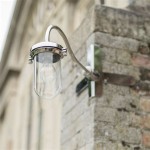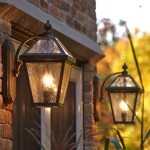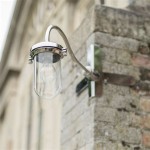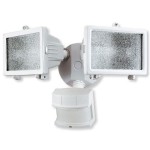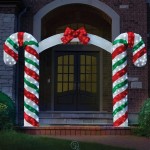Architectural Outdoor Lights: A Guide to Essential Aspects
Outdoor lighting plays a crucial role in enhancing the aesthetic appeal, safety, and functionality of architectural structures. Well-designed architectural outdoor lights can illuminate pathways, highlight architectural features, and create a welcoming ambiance. Here are some essential aspects to consider when selecting outdoor lighting for your building:
Types of Outdoor Lighting
There are several types of outdoor lighting fixtures to choose from, each with its own purpose and application:
- Path lights: Illuminate pathways and sidewalks, providing safety and visibility.
- Spotlights: Highlight architectural features, sculptures, or plants, creating visual interest.
- Floodlights: Provide general illumination for large areas, such as parking lots or open spaces.
- Wall-mounted lights: Mount on exterior walls to provide ambient lighting and enhance curb appeal.
- Pendant lights: Suspended from ceilings or eaves, create a warm and inviting atmosphere.
Materials and Durability
Outdoor lights are exposed to the elements, making material selection crucial. Durable materials like aluminum, stainless steel, or copper can withstand extreme temperatures, moisture, and corrosion.
Light Source and Color Temperature
The light source determines the brightness, color, and energy efficiency of the lights. LED lights offer high energy efficiency, long lifespan, and excellent color rendering. Choose a color temperature that complements the building's aesthetic, such as warm white for inviting spaces or cool white for modern buildings.
Energy Efficiency
Energy-efficient outdoor lights save energy and reduce operating costs. Look for fixtures with motion sensors, timers, or dimmers to minimize unnecessary energy consumption.
Control and Automation
Modern outdoor lighting systems can be integrated with smart controls and automation to enhance functionality and convenience. Remote control, scheduling, and group control allow for easy adjustment of lighting levels and settings.
Compatibility and Aesthetics
Consider the architectural style of the building when selecting outdoor lights to maintain a cohesive design scheme. Ensure compatibility with other fixtures and materials used on the exterior of the structure.
Maintenance and Safety
Regular maintenance is essential to keep outdoor lights functioning optimally. Clean fixtures periodically to remove dirt and debris, and check for any loose connections or damaged components. Follow safety guidelines when handling electrical equipment, especially when working at heights or in wet conditions.
Conclusion
Architectural outdoor lights are an essential element that can transform the appearance, safety, and functionality of any building. By considering the essential aspects discussed above, architects and building owners can select the right lighting solutions to enhance the overall aesthetic and appeal of their structures.

Bring Life To Architecture With Exterior Lighting Outdoor Installers
Outdoor Lighting Ideas 10 Designs Architecture Design

Architectural Lighting Outdoor Perspectives Of Northern Ohio

An Architect S Guide To Outdoor Lighting Architizer Journal

An Architect S Guide To Outdoor Lighting Architizer Journal

Exterior Lighting Outdoor Wall Lights Garden Landscape Light Boscolighting

Outdoor Exterior Architectural Lighting Tcp Solutions

Led Outdoor Architectural Lighting In And Usa Gemstone Lights

Exterior Lighting Outdoor Wall Lights Garden Landscape Light Boscolighting

Learn About Exterior Architectural Lights Gemstone
Related Posts
